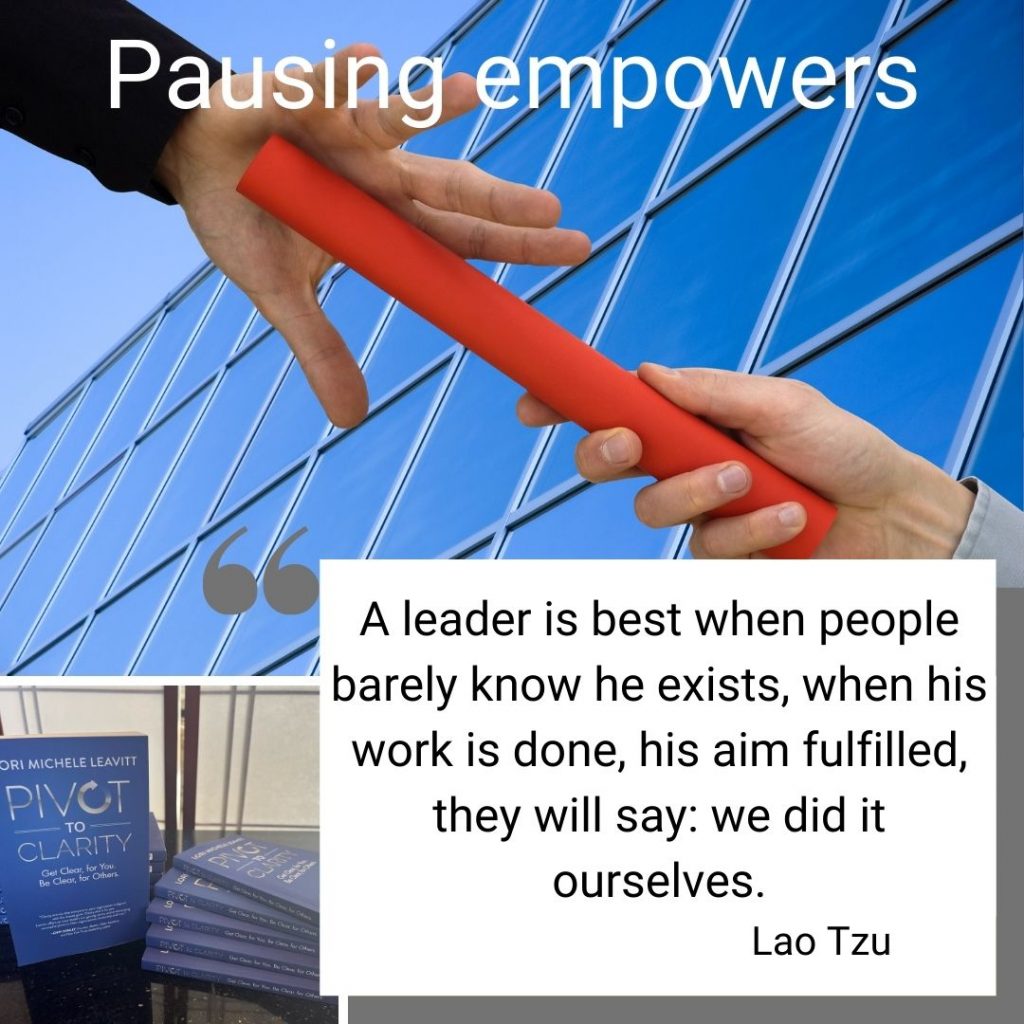
Today I shared a conversation with a business owner about remote conversations. We especially honed in on the power of the pause.
There are many types of pauses. The pause I speak about most in Pivot to Clarity is one that takes you away from the busy-ness of work and life, to think deeply, creatively, and strategically about the future.
Now, let’s talk about pausing before we speak, and throughout any conversation. There’s even benefit to pausing while presenting. If having your words land in an understandable and memorable way with the other party or audience, read on.
If you’re like me, you may be a quick thinker, and find it easy to allow words to flow eloquently … and yet … are you being clear? Are you being so clear that others can get clear?
In most cases, those you are addressing will benefit if you pause. Therefore you will benefit as well.
I’ve learned and practiced pausing before and during speaking. I’m still far from being a master at this. I could easily “blame” this on being an ENTJ per the Myers-Briggs and Kiersey-Sorter assessments. The NT part of that is described as an intuitive thinking, basically meaning that an ENTJ has a tendency toward complex, big picture and future concepts, and may think aloud about what and why rather than how.
But no identifier is to be blamed for how I show up. I choose how I show up. I must care, be aware, and continuously work to improve how effective I am in the way I show up (speak, write, listen, etc.).
No matter how eloquently we think aloud, others can struggle to follow what we are saying.
So, as someone who is humbly still learning, I share with you some tips to help you pause more to be clearer with others when you communicate:
- Make a habit of forming solution statements into a question.
You may quickly come up with a solution in your mind, but if it is about an action that is to be taken by someone else, then why not guide rather than solve? Asking questions—and without judging the answers—can allow them to consider and choose, while you remain the leader and help them figure out their next step themselves.
- Notice your breath.
Take a deep, silent, pause-inducing breath before you speak and during. Leverage this as a trigger for you to stop, look, and listen. Can you see or sense how your words are landing? Have they said something, or tried to say something, for you to acknowledge?
- Practice writing as if you were speaking to someone.
Where do you find you lift your hands from the keyboard to ponder or re-read? Where and when do you edit yourself as you write, that if you were to do while speaking would cause your communication to be more effective?